Роберт Бюттнер - Orphan's Journey
Здесь есть возможность читать онлайн «Роберт Бюттнер - Orphan's Journey» весь текст электронной книги совершенно бесплатно (целиком полную версию без сокращений). В некоторых случаях можно слушать аудио, скачать через торрент в формате fb2 и присутствует краткое содержание. Жанр: Боевая фантастика, на английском языке. Описание произведения, (предисловие) а так же отзывы посетителей доступны на портале библиотеки ЛибКат.
- Название:Orphan's Journey
- Автор:
- Жанр:
- Год:неизвестен
- ISBN:нет данных
- Рейтинг книги:3 / 5. Голосов: 1
-
Избранное:Добавить в избранное
- Отзывы:
-
Ваша оценка:
- 60
- 1
- 2
- 3
- 4
- 5
Orphan's Journey: краткое содержание, описание и аннотация
Предлагаем к чтению аннотацию, описание, краткое содержание или предисловие (зависит от того, что написал сам автор книги «Orphan's Journey»). Если вы не нашли необходимую информацию о книге — напишите в комментариях, мы постараемся отыскать её.
Orphan's Journey — читать онлайн бесплатно полную книгу (весь текст) целиком
Ниже представлен текст книги, разбитый по страницам. Система сохранения места последней прочитанной страницы, позволяет с удобством читать онлайн бесплатно книгу «Orphan's Journey», без необходимости каждый раз заново искать на чём Вы остановились. Поставьте закладку, и сможете в любой момент перейти на страницу, на которой закончили чтение.
Интервал:
Закладка:
Howard stopped beside a lock-down hatch stenciled “Firewitch Portal. Cav 512 Monitors required beyond this point.”
Howard unhooked three orange chest badges from a wall cabinet, handed one each to Munchkin and me, then clipped his own to a pocket flap.
I clipped mine on, then asked him, “Cav 512?”
“The atomic number’s a convenient fiction. It’s not really an element.” Howard passed his wrist across the entry plate, the hatch hissed open, and chill wind slapped my face.
I shivered, but not from the cold. At the tube’s end lay an oval cross-section passage, barely tall enough to stand in. It corkscrewed away for fifty yards, suffused in purple light.
Howard said, “How long since you boarded a Pseudocephalopod ship?”
“Not long enough.”
SIX
MUNCHKIN POUTED. “This thing still creeps me out.”
Howard strode down the passage toward the Slug warship. “Oh, come on! The most dangerous thing in here now is the employee lunch cart.”
I slid one foot across the threshold, fingering my orange badge. “What about this Cav 512?”
“There’s nothing dangerous about properly shielded Cavorite.”
My jaw dropped. “You’re joking.”
Munchkin frowned, her face lavender under the Slug lighting. “Cavorite’s a joke?”
I said to her, “Cavorite’s a nonexistent mineral H. G. Wells thought up. It blocked gravity, so his characters could fly to the moon.”
Howard grinned. “Catchy name, huh?” He index-fingered his chest. “My idea.”
“That’s how the Slugs could approach light speed? A gravity shield?”
Howard frowned. “More a graviton sponge. But that’s the least puzzling part of it.”
Howard must have been the only one in his kindergarten class unpuzzled by graviton sponges.
The passage widened into a chamber bigger than a concert hall, with walls as lumpy and purple as stomach ulcers. From the chamber floor’s center, a spot-lit stalk twisted upward thirty feet, then flattened and widened like a metal toadstool. All around the stalk, Howard’s geeks had erected a spiraling Aluminex scaffold.
Howard motioned to me to follow him up the scaffold’s stairs. “We’ve identified this as the control ganglion. Pilot’s seat, if you will.”
In the twilight spill around the stalk a hundred admin bubbles, with empty chairs and dark screens, lay in a ring. Hard wire bundles fatter than fire hoses ran across the floor from them to the stalk.
We climbed toward the ganglion’s top. Our boots’ clatter echoed in the chamber’s emptiness. “Where are all your people, Howard?”
Howard glanced down at Munchkin. “There’s nothing left to do in here. For the moment.”
“Meaning?”
“We need cooperation.” Howard reached the metal platform atop the stairs, knelt, and panted.
“From what?”
Howard pointed at the stem’s top.
I stared down into the toadstool’s cap. Its blue-black center dropped down in a depression. Within the depression an upholstered day-glo orange pilot’s couch was welded to Aluminex girders that suspended the couch in the middle of the depression. A control yoke curved in front of the couch.
I nodded. “Okay. You fabricated a human interface. A pilot’s couch, so we can replace a Slug pilot with a human.” I sniffed disinfectant. “Was there a dead maggot in the seat when you got inside?”
Howard shook his head. “We just did routine cleaning. Virtually nothing organic remained in the hull.”
I shuddered. “A ghost ship?”
“Nothing supernatural. The Pseudocephalopod maintained symbiotic disposal bacteria to deal with organic waste. In the four years after we captured the ship and before we got inside, the bacteria consumed all the organic matter, notably the crew’s corpses. When nothing else organic remained, the bacteria consumed each other, until the last few starved. Our microbiologists identified the residue.”
“The Slugs got eaten by their recycling toilet?”
“Basically. Turns out a Firewitch maintains itself. Like a car that changes its own oil and hammers out its own dents.” Howard pointed forward. “This section was battle-damaged and transparent when we captured the ship. By the time we started building New Moon around the ship, the section was repaired and solid.”
“How did the Slugs fly this thing?”
Howard tapped a blob that looked like a metal liver. “This converted visible-spectrum light to infrared for the pilot.”
I nodded. “Slugs see infrared.” Every schoolchild knew that.
Howard nodded. “But evidently, the Pseudocephalopod found infrared light inadequate for interstellar navigation.”
Howard called Slugs “the Pseudocephalopod,” because they were a single organism with physically disparate parts.
Howard stroked the couch. “Unfortunately, even though human vision bypasses the visible-light-infrared conversion, we haven’t been able to achieve an interface.”
“You’ve owned the car four years and you can’t turn the key?”
Howard shook his head. “A cockatoo has a better chance of starting a Cadillac. We’ve laid sixty-one different astronauts and test pilots and six custom-designed ’Bots in this couch. The Firewitch never responded.”
“Then we can’t make this monstrosity fly?”
“I didn’t say that. We think the ship is programmed to respond only if an organic pilot demonstrates adequately quick reflexes. Like the alcohol lockout on the family Electrovan.”
“Reflexes?” I looked down at Munchkin. “Jude?”
She nodded.
My godson was the only human conceived and born in space. More specifically, conceived in a troop ship bound for the orbit of Jupiter. Jude was the gifted offspring of a supremely gifted pilot and a smart, sharpshooting female GI. But more than that, by age four Jude was quick enough to ’round on a fastball nanoseconds faster than a major-league shortstop. Arachnids do it too, detecting phenomena in the physical environment before other animals, or even ’Puter sensors, can.
Why could Jude do it? Mutation. “Empty” space teems with heavy metal ions. Earth’s atmosphere soaks them up before they can pass through human embryos. But in space, those ions zip through a ship hull’s atomic fabric like dust through a window screen. New Moon had shielding, even the Clippers have shielding today, but the first troop ship of the Slug War didn’t. It had been as naked as an old-time space capsule. Astronauts used to see the ions, tiny light streaks flashing through their cabins.
The Spooks figured an ion sliced one of Jude’s DNA strands in utero. The rest was natural history.
I asked Munchkin, “How’d the Spooks talk you into this?”
Once the Spooks deduced Jude’s “Apparent Precognition,” he became Space Medicine’s must-have toy.
Unfortunately for Space Medicine, Munchkin wouldn’t let them use her only child as their lab rat. She had been winning the tug-of-war since Jude turned five.
She stabbed her finger at Howard. “Ask him!”
Howard unwrapped two nicotine gum sticks at once. His fingers shook a little. “I just offered. I objected to the rest of it.”
Munchkin pointed at Howard. “Objected? You were a spineless, devious dork!”
Howard straightened. “I was never spineless!”
Munchkin sniffed, then said to me, “I turned Howard down. So the Army ‘discovered’ that I was six months short of requirements to keep my pension and Metzger’s dependent carry-forward. But if I accepted a civilian contract up here under Howard for six months, and by-the-way brought my minor child along, they would tack on the time. All forgiven.”
“That’s extortion. Get a lawyer.”
“I did. Well, I asked Judge March. He said any decent lawyer could beat the government on it.”
Читать дальшеИнтервал:
Закладка:
Похожие книги на «Orphan's Journey»
Представляем Вашему вниманию похожие книги на «Orphan's Journey» списком для выбора. Мы отобрали схожую по названию и смыслу литературу в надежде предоставить читателям больше вариантов отыскать новые, интересные, ещё непрочитанные произведения.
Обсуждение, отзывы о книге «Orphan's Journey» и просто собственные мнения читателей. Оставьте ваши комментарии, напишите, что Вы думаете о произведении, его смысле или главных героях. Укажите что конкретно понравилось, а что нет, и почему Вы так считаете.

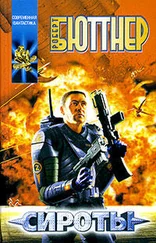

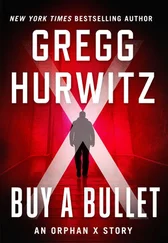
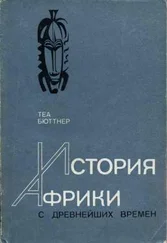

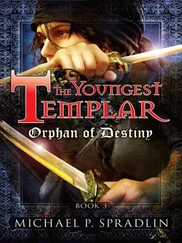
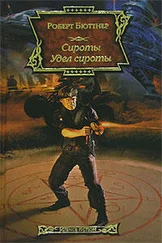
![Дэн Бюттнер - Где живет счастье [Правила жизни самых счастливых людей планеты] [litres]](/books/395574/den-byuttner-gde-zhivet-schaste-pravila-zhizni-samyh-thumb.webp)


